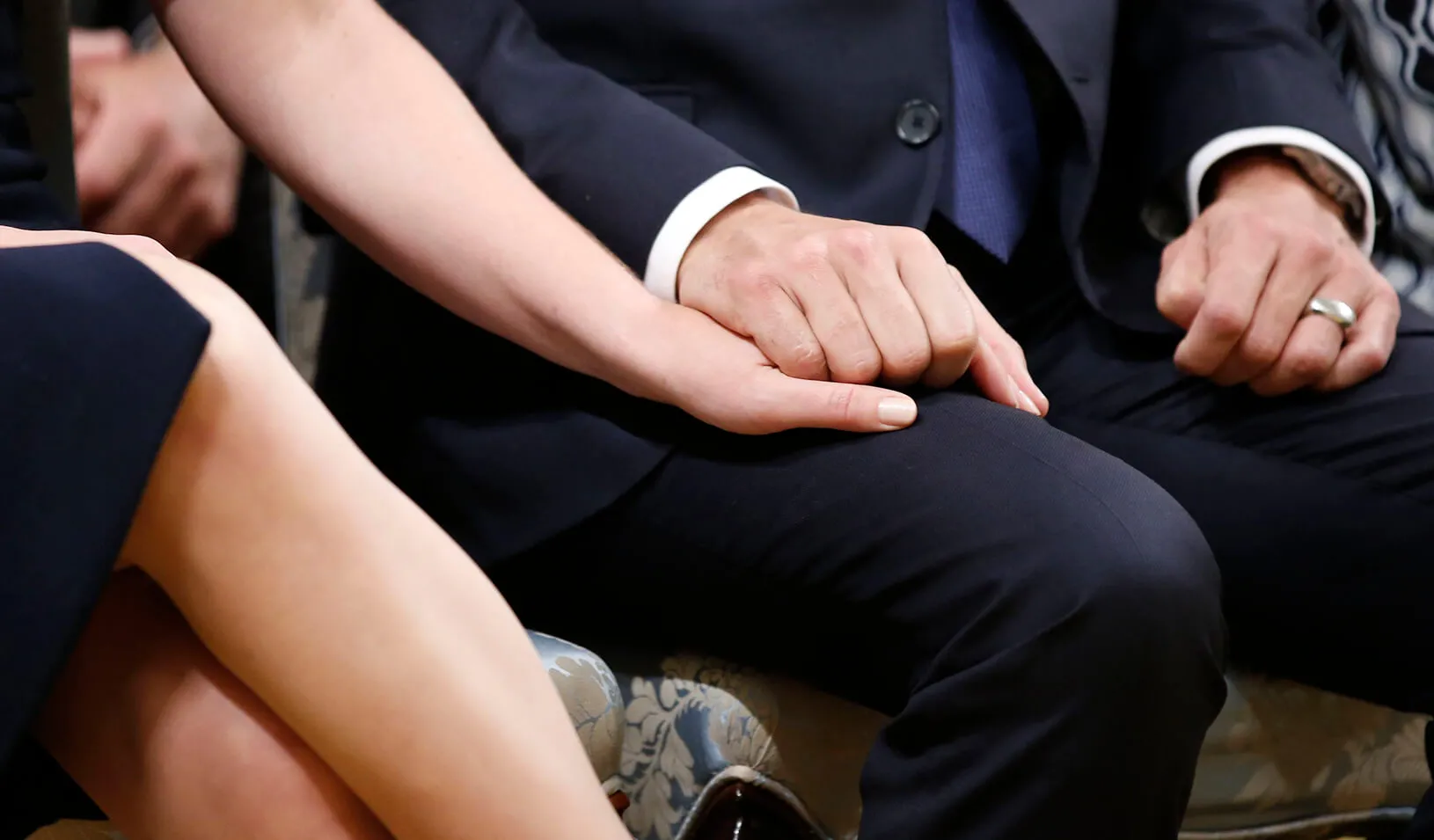November 22, 2016
| by Theresa JohnstonWhen Jackie Pimentel and Preston Rutherford met in 2010, she had just landed a demanding job at Facebook, and he was working down the street as a product manager at Cooliris, a visual sharing and search platform. They dated for three months. Then one day, Rutherford announced that he was quitting his job. The goal, as Pimentel recalls, laughing, “was to fulfill a dream of selling shorts to fraternity guys online.”
For many couples, that could have been a deal-breaker. Yet today the two are happily married. Pimentel leads product marketing monetization for delivery and targeting ad products at Facebook, while Rutherford is the co-founder of Chubbies, an e-commerce company specializing in shorts and weekend wear.
Pimentel and Rutherford were among four local “power couples” who spoke at Stanford Graduate School of Business this fall as part of a discussion sponsored by the school’s Women in Management group. The panelists, including six Stanford GSB alumni, described the challenges of maintaining a loving relationship and a well-functioning household when both partners are working long hours or traveling constantly. They also offered some road-tested ideas for making such relationships work. Among them:
Approach Life as a Team
Before Lindsey Scrase and Theresa Hagel got together while pursuing their MBAs at Stanford GSB, they were independent women used to getting what they wanted. Now that they’re married and working in demanding jobs — Scrase leads the global online sales team for G Suite (formerly Google Apps for Work), while Hagel serves as head of member advocacy and client operations at Collective Health — they approach life as a team. “There will always be ups and downs,” Scrase said, “but we focus on seeing and recognizing the positives in one another.”
Remember the Good Old Days
Whenever Purvi Mody and Ajit Jain are having a rough day, Mody said, they like to think back to the early days of their relationship at Stanford GSB, where they received their MBAs in 2004. Jain, who works closely with Mody as co-founder of the counseling and test prep website Insight Education, nodded. “Cherish the early moments of your relationship,” he advised the audience. “Remember when you didn’t know much about [your future partner] and you wanted to know more.”
Small Gestures Are Important
As busy working parents of two young children, Mody and Jain don’t have a lot of time for romantic getaways. Fortunately, they said, day-to-day life offers many opportunities for loving gestures. “Making coffee for the other person, letting the other person sleep in, letting the other person pick a movie — those are small things, but they are memories that we are going to take with us,” Mody said. Jain agreed: “Little stuff, like smiling and being happy on a regular basis, is huge. If you just like your life,” that alone is a gift to your partner.
Use Technology Wisely
The panelists agreed that when it comes to relationships, technology can be both a blessing and a curse. On the plus side, it can help busy couples keep track of each other. Pimentel and Rutherford used Facebook’s Asana app to plan their wedding, for example, and now sit down every Sunday evening to put items on their shared Google calendar. But it’s also smart, at times, to set the electronic devices aside and focus on each other. “For many years, I never disconnected and worked myself into the ground,” Rutherford said. “I completely regret it.”
Be Emotionally Open
Early in their relationship, Mike Ding and Sarah Wang, both in the MBA Class of 2016, had a tendency to sweep problems under the rug. “Whenever we got into fights or had uncomfortable conversations, I often would act like nothing was wrong,” Ding explained. All that changed when they took a class on interpersonal dynamics, known at Stanford GSB as “Touchy Feely.” Today they’re both vice presidents at private equity firms — he at Warburg Pincus and she at TA Associates — and are engaged to be married. As Ding noted, “We’re willing to have those uncomfortable conversations now, even if we don’t want to have them at first.”
Turn On the Music and Dance
Because Wang and Ding travel extensively for their jobs, they make extra efforts to keep in touch. Daily video chats help when they’re on the road. Few things bring them more pleasure, though, than a simple daily ritual. “Every morning when we get up, we say to [our Amazon home automation assistant] Alexa, ‘Play pop music!’ Whoever gets up second will see the first person brushing their teeth and doing a dance, and then that person will start dancing, too,” Ding told the audience, to laughter. When you don’t see the other person as often as you’d like, he said, “it’s the special, small things in a relationship that can make all the difference.”
For media inquiries, visit the Newsroom.






